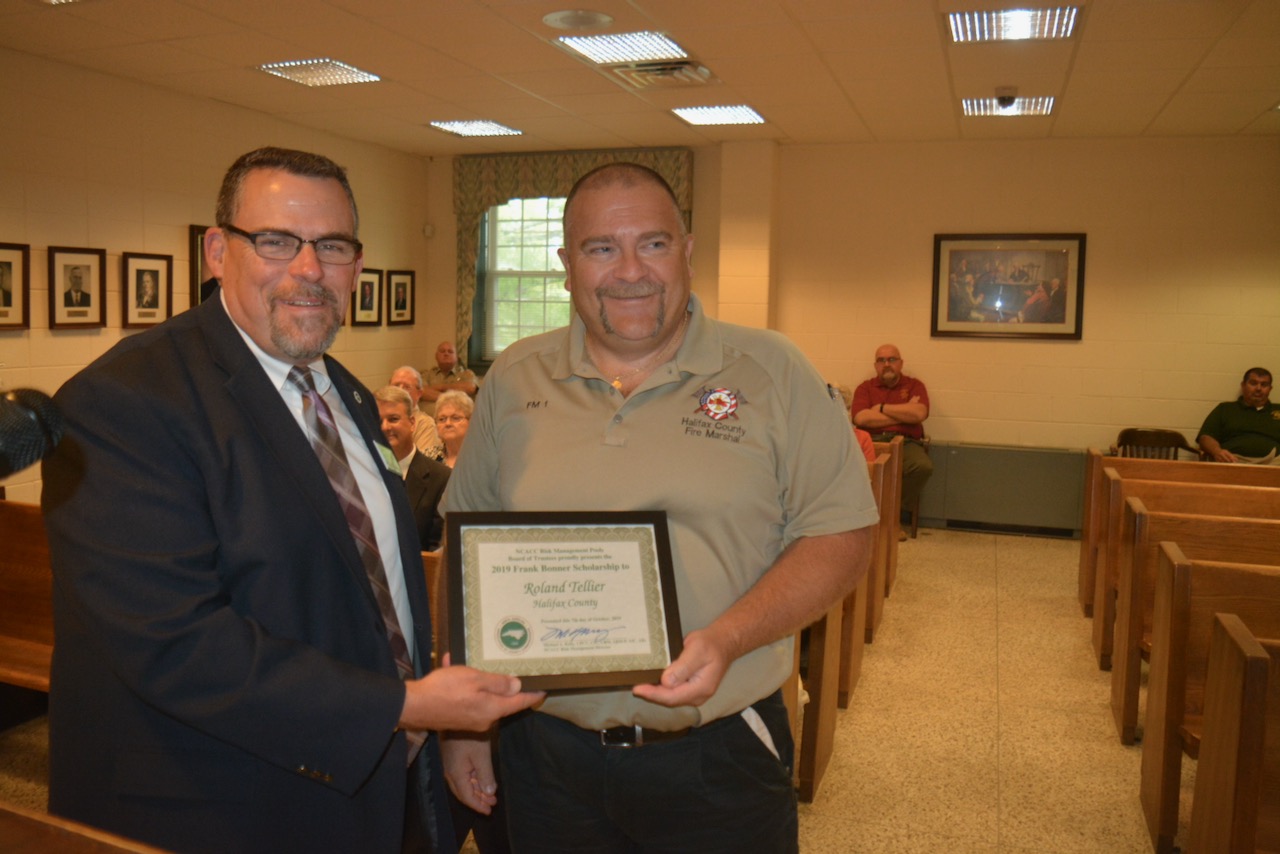Roland Tellier, Halifax County fire marshal, was recognized with the 2019 North Carolina Association of County Commissioners Frank Bonner Scholarship for his dedication to implementing risk management techniques in the workplace.
Bob Carruth, NCACC Risk Control manager, presented the award at the Halifax County Board of Commissioners meeting Tuesday.
The 2019 award will cover expenses for attending the PRIMA Institute, which takes place October 20-26 in San Diego.
It is the premier educational program for both new risk managers and seasoned risk professionals who seek to learn more about emerging trends and best practices.
In 2004, the NCACC Risk Management Pools Board of Trustees established the scholarship program to further risk management education of exceptional county employees.
It was named in honor of Frank Bonner, a dedicated, long-serving commissioner from Beaufort County, who was instrumental in establishing the risk pools.
Bonner served as both trustee and chair of the board of trustees for many years.
Livestock running at large
In another matter Tuesday, the board directed County Manager Tony Brown to develop policies and procedures to address the problem of livestock running at large in the county.
In notes contained in the agenda packet, County Attorney Glynn Rollins said, “There is a persistent problem in Halifax County with livestock running at large which creates a public nuisance, a threat to public safety, and a potential risk to animal welfare.”
The state’s livestock law sets forth various statutes related to the impoundment, care, disposition and recovery of costs related to livestock running at large, including the statutory authority for local governments to impound, care for, dispose of, and recover costs related to livestock running at large. “Because of this statutory authority, the adoption of county ordinances related to livestock running at large is not necessary. However, to avoid an ad hoc approach to this problem, county staff proposes that the county manager be authorized to develop policies and procedures consistent with the livestock law for the impoundment, care, disposition and recovery of costs related to livestock running at large.
“If authorized by the board, board approval of the specific policies and procedures established would not be required. However, future board approval would be required for the adoption of any fee schedule or budget ordinance amendments necessary to implement those policies and procedures.”








